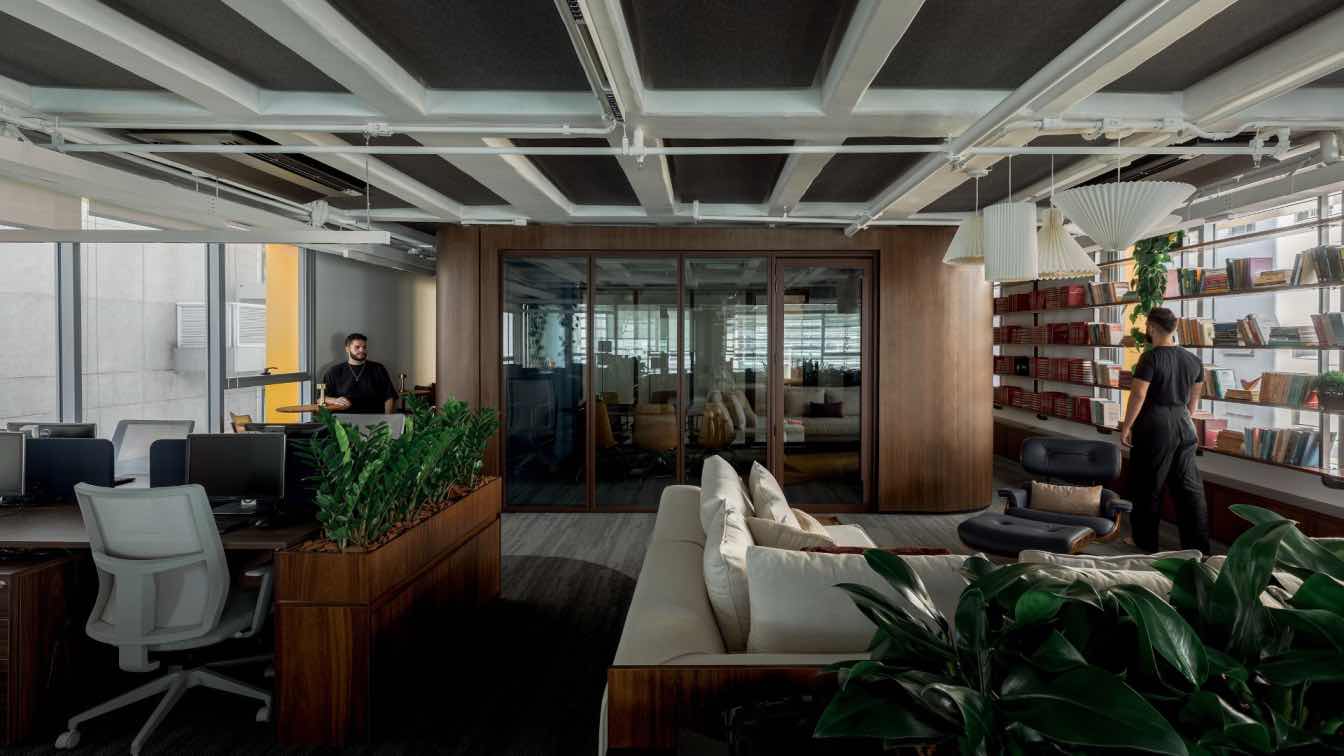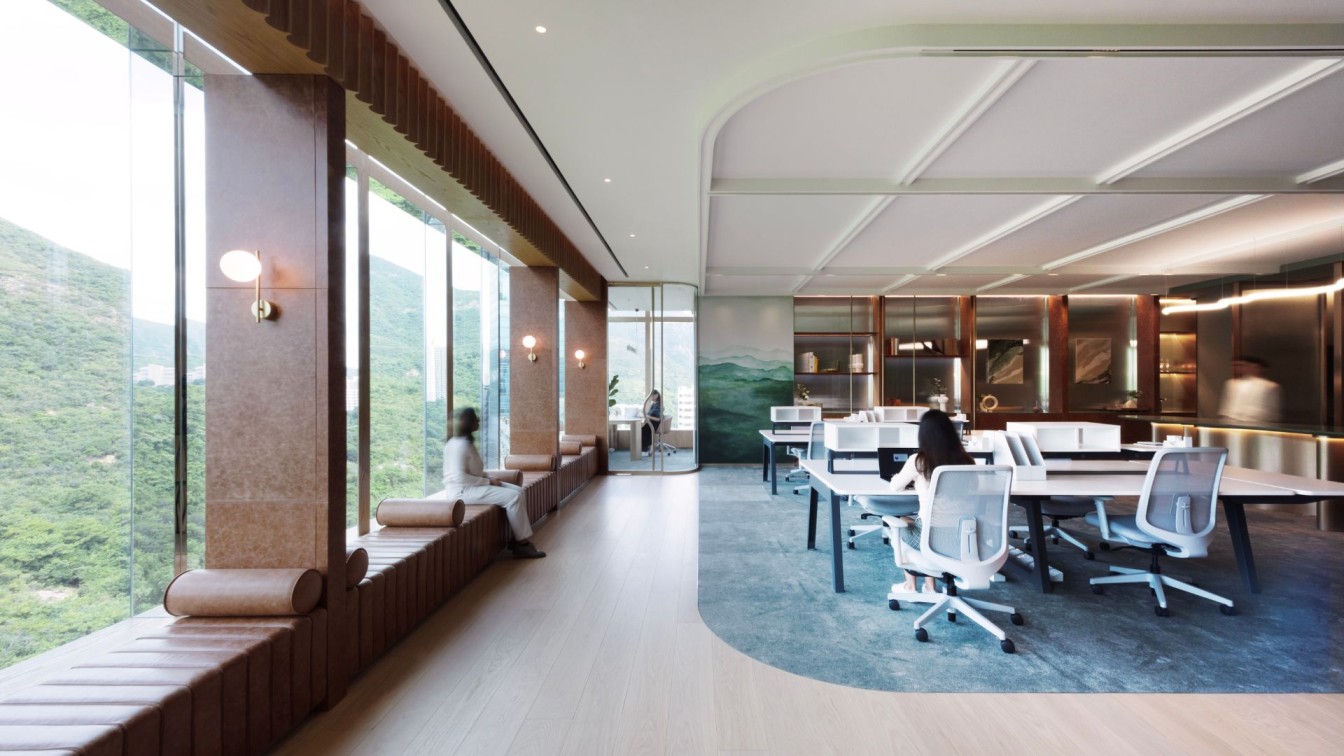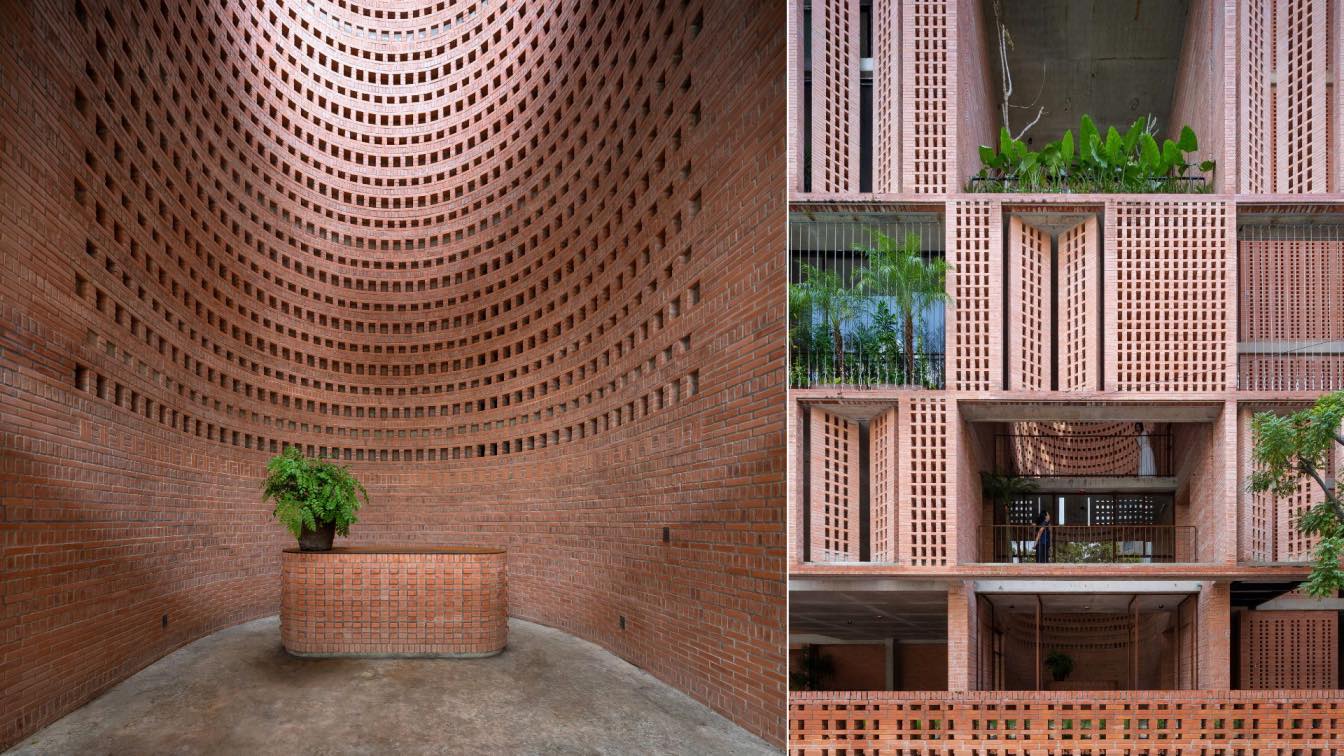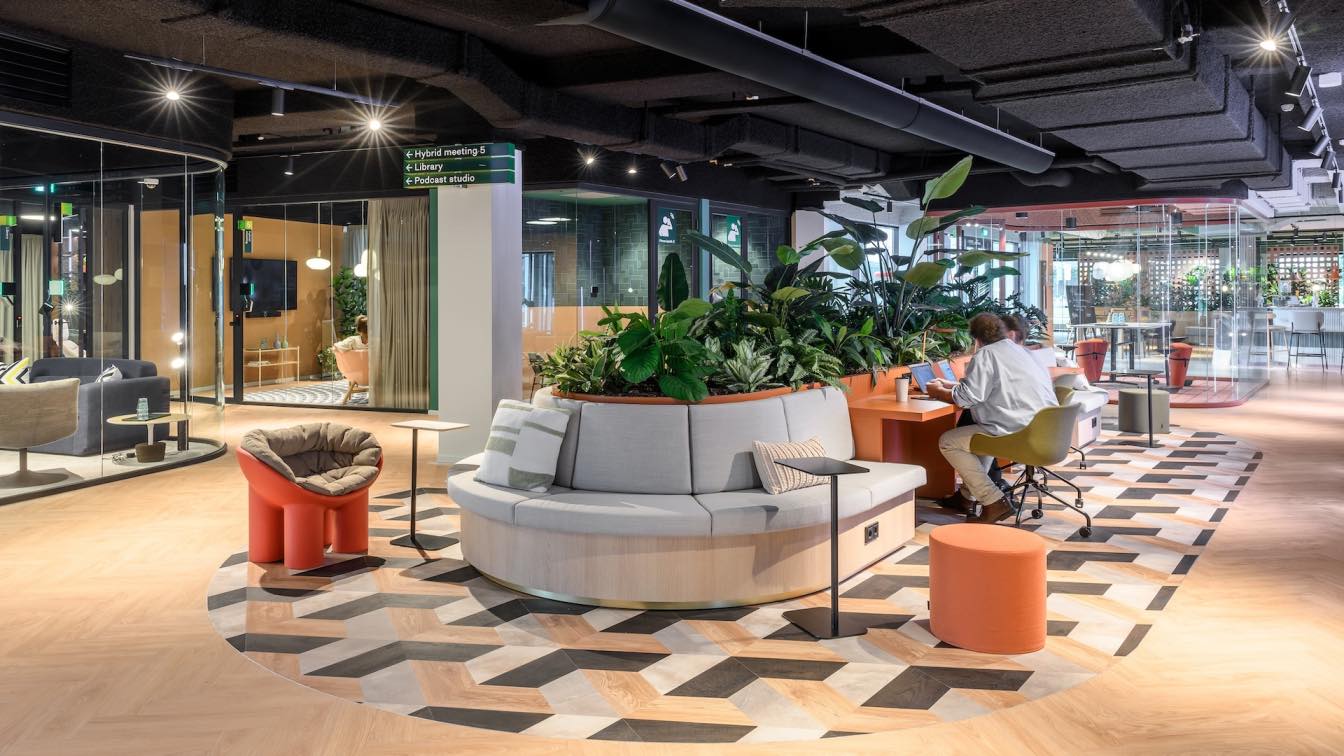The design of this office establishes a shared space for the new headquarters of the Brazilian law firms Zockun & Fleury Advogados and Filgueiras Advogados. Located in the Bravo Paulista Building in São Paulo, architect Vinicius Almeida was involved in selecting the property, which features a retrofit project led by Dal Pian Arquitetos (2021-2022). The building stands out for its architectural quality, with generous openings protected by high-performance thermal glass with low solar reflectance. Additionally, horizontal aluminum profiles mounted on metal supports filter the light entering the units. The building’s architecture is LEED-certified, a mark of sustainable construction practices, and this certification later guided the selection of materials for the interior design.
The project's goal was to convey the firms' professionalism to clients while maintaining a welcoming environment that prioritizes the well-being of the team. To achieve this, StudioVA, led by architect and creative director Vinicius Almeida, aimed to reinforce the firms' solid image by creating an intimate atmosphere for client meetings and work areas. During the initial site visit, it noted that the raw ceiling height was relatively low. However, the exposed concrete slab allowed for some height gain. As an initial concept, the slab structure exposed throughout all work areas, enhancing the sense of ceiling height and highlighting the building's features. The beams and infrastructure installations painted white, and the cores covered with acoustic ceilings.
The approximately 180-square-meter office organized into four main areas: the reception lounge, restrooms and pantry, workstations, and meeting and videoconference rooms. To define the reception and support areas, a lowered wooden ceiling wraps around the slab, creating a more private space. This element extends beyond the central core of the building, which houses vertical circulation, the pantry, and restrooms, establishing a "box" that delineates the support area. Access doors to the rooms camouflaged within the panel, covered with sheets of the same material internally and with fabric externally.
The combination of concrete and wood slabs reinforces the blend of classical and contemporary styles desired by the clients. In the reception area, the service counter introduces the curved lines that appear in other interior elements. An exotic-cut Azul Bahia granite base with slightly rounded vertices supports the custom cabinetry structure. The structural overhang conceals LED profiles that provide indirect lighting for the furniture.
On the side, the waiting room defined by a generous linen-upholstered sofa, specifically designed by StudioVA for the space, and a caramel leather Hygge armchair (Studio Lucas Caramés Design Autoral, by Boobam). The color appears punctually in accessories carefully selected by StudioVA, including an organically designed rug by Alessandra Delgado for Punto e Filo and artwork by Heway Verçosa, a contemporary artist from Alagoas.
The composition complemented by an Aurora floor lamp, designed by Felipe Hess for Lumini, and decorative elements in wood and glass. The curation of pieces throughout the office aims to highlight contemporary Brazilian design. A key element of the design is the bookshelf that stretches along the entire side glass facade and embraces the staff, accommodating the literary collection and filtering natural light. For added dynamism, the upper bookshelf weaves through the main area. At the base, cabinets provide storage for files and documents. To organize the layout and provide privacy between areas, a central volume houses the main meeting room.
The closures are made of glass, and the structure covered in Real Oak wood by Formica. Its rounded vertices provide greater spatial flow, and externally, a niche accommodates a counter for coffee preparation and quick meals. The handle-less cabinets blend into the cabinetry structure. Workstations distributed throughout the main space, with desks made of the same wood used in other architectural elements. Planters at the ends introduce greenery, maintaining the natural finish palette and contributing to the concept of biophilia. The office accommodates up to 20 employees.
At the back, another volume organizes the executive area and a continuation of the staff area – a flexible space with the potential to become a new meeting room in the future. Following the same concept as the waiting room, a lounge dedicated to the team maintains a focus on well-being and informal meetings. The sinuous rug in earthy tones organizes the seating, the armchair, and the Eames Lounge ottoman from Herman Miller. Above, a set of lamps by Brazilian designer Mel Kawahara provides a soft light.
In the restrooms, suspended countertops in exotic-cut Azul Bahia granite and walls covered with wooden panels reinforce the project's distinctive character.










